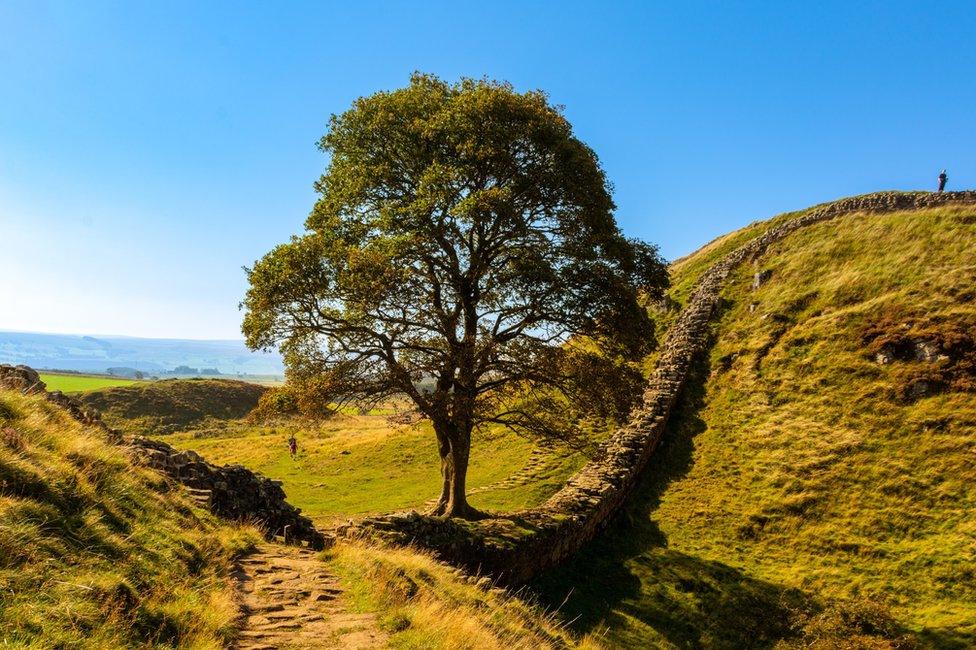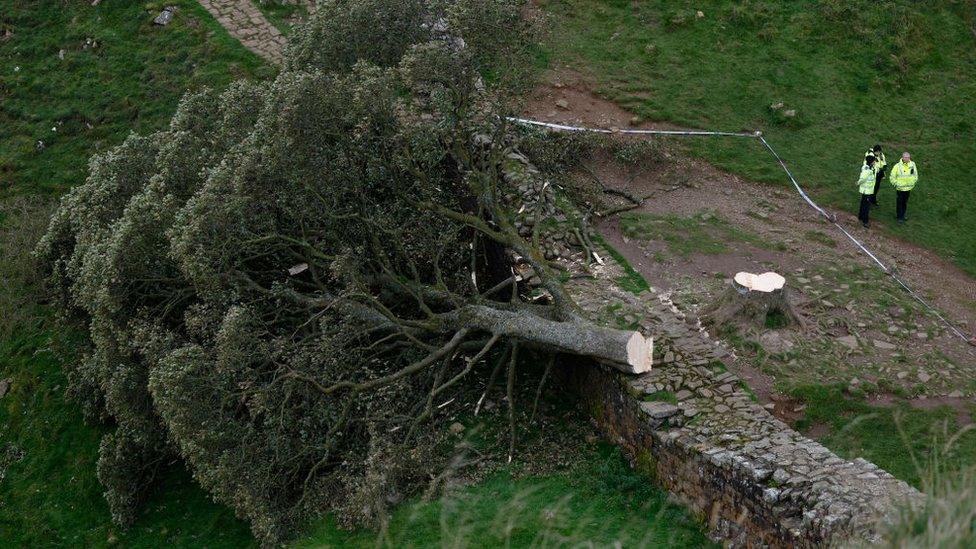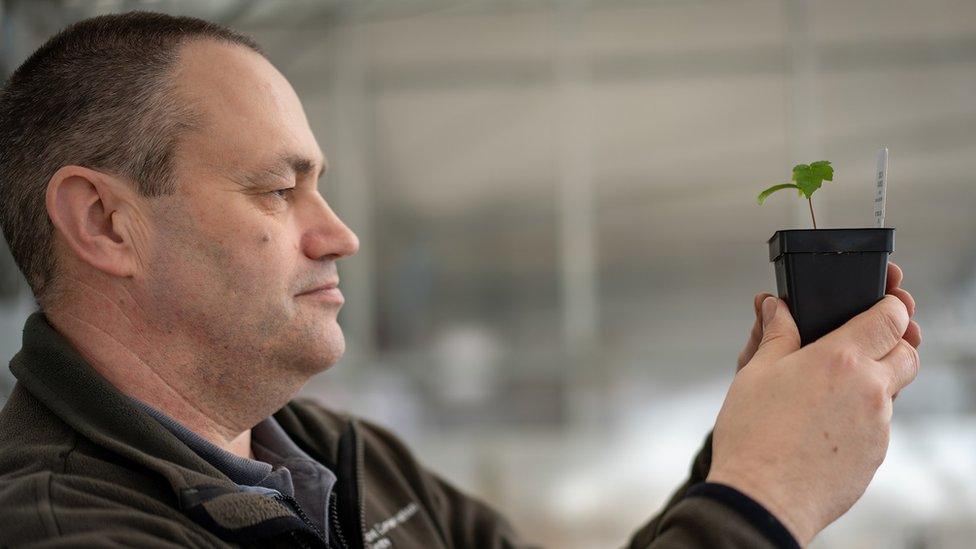Sycamore Gap: Iconic tree being 'regrown' in secret lab
- Published
- comments

One of the most iconic trees in the UK is being "regrown" in a secret lab.
The Sycamore Gap tree grew, as its name suggests, in the middle of a gap in Hadrian's Wall, in Northumberland.
Last year it was mysteriously felled - which means someone cut it down.
The police are still investigating to find out who did it.
Luckily, there's hope for the tree, as experts are growing seedlings from its twigs and seeds.
What was the Sycamore Gap tree and why was it so famous?

The Sycamore Gap made the perfect backdrop for many photographers
For around 300 years, the huge Sycamore Gap tree stood along Hadrian's wall, in the north of England.
It won Woodland Trust's Tree of the Year in 2016, and has featured in several films, including the 1991 version of Robin Hood, Prince of Thieves.

This was the site after the tree was cut down
When it was cut down, many people shared their stories of the tree, and how they enjoyed walking to it.
It's a key point on a famous hike along Hadrian's Wall. When the tree was chopped down The National Trust said it was "shocked and saddened".
Built in 122 AD, Hadrian's Wall was put up by the Romans, as a border for Britannica.
A large amount of what was beyond the wall was what we now call Scotland, back then it was a selection of different places the Romans called Caledonia.
The wall gets its name from the emperor who ordered it to be built - Hadrian.
New life for the Sycamore Gap Tree?

Experts used a technique called grafting to keep the tree "alive"
Scientists took a collection of twigs and seeds from the Sycamore Gap tree to try and regrow new versions of it.
It will take hundreds of years for any of these seeds to grow to the height of the original tree, but, if looked after, some of them could become adult trees in 25 years.
The seeds are being grown in a secret lab that holds the seeds of other famous trees - like Cambridge's Isaac Newton apple tree - in case something happens to them in the future.
Scientists hope that by keeping the lab's location secret they can protect their work as much as possible.
There's lots of ways that you can grow trees from seeds, but in this case experts are using a technique called grafting, which dates back to ancient Rome and ancient Egypt.
They take a section from the fallen tree, cut it, and wedge it into another piece of a similar species.
The team currently has nine surviving grafted plants, and 40-50 seedlings.
